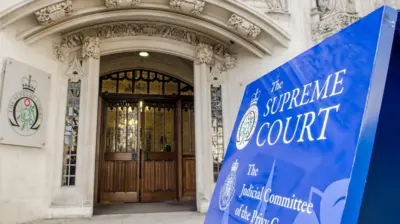We've updated our Privacy and Cookies Policy
We've made some important changes to our Privacy and Cookies Policy and we want you to know what this means for you and your data.
Euro crisis: Monti stays upbeat as Obama calls
Top Stories
Italy's Prime Minister Mario Monti has said he sees "light at the end of the tunnel" on the eurozone debt crisis.
Mr Monti met French President Francois Hollande in Paris after which the two renewed their support for the euro.
He also received a call from US President Barack Obama, who "asked for his views on the situation on the eurozone".
<link> <caption>Figures released on Tuesday</caption> <url href="http://epp.eurostat.ec.europa.eu/cache/ITY_PUBLIC/3-31072012-BP/EN/3-31072012-BP-EN.PDF" platform="highweb"/> </link> showed that eurozone unemployment rate was at a record high of 11.2% in June.
"I don't think ultimately that the Europeans will let the euro unravel," Mr Obama said at a campaign event on Monday.
Top Stories
"But they're going to have to take some decisive steps."
The French president, after speaking with Mr Monti, said they agreed that the euro should be "defended, preserved and consolidated" and added there had been "significant progress" in recent weeks.
Unemployment
Top Stories
Some 17.8 million people were out of work across the eurozone in June. That was up two million from a year earlier.
The rate of 11.2% was the same as for the month before. Eurostat had also revised up May's figure from its previous estimate of 11.1%.
The highest unemployment rate in the eurozone was in Spain, at 24.8%. In Italy, the rate hit a 13-year high of 10.8%, with 2.8 million Italians out of work.
Speculation has risen in recent days that European authorities are set to take action to lower borrowing costs for Spain and Italy.
As well as his meeting with Mr Hollande, Mr Monti is also travelling to Finland and Spain, and he said he hoped his meetings would help "secure the euro and give a decisive boost to European growth".
"It is a tunnel but... some light is appearing at the end of the tunnel. We and the rest of Europe are approaching the end of the tunnel," he told Italian radio.
Mr Monti's government has forced through deep spending and public sector job cuts in order to reduce its monthly spending to more affordable levels.
These austerity measures have shrunk national wealth in Italy, leading to a recession. Most of Italy's eurozone neighbours have the same problem.
Plans to allow the eurozone's bailout fund to buy government debt from Spain and Italy - one of the measures agreed at last month's European Union summit - could help reduce the countries' borrowing costs which would make it easier for them to restore economic growth and jobs.
Breaking the deadlock
Over the weekend, a joint statement from Chancellor Angela Merkel and French President Francois Hollande was thought to indicate that Germany had softened its opposition to using the ECB and European bailout funds to buy government debt.
Mr Monti said: "Both Hollande and I have recently had contact with Chancellor Merkel. We have a way of working together... the breakthrough will be to push everyone to enact the decisions made in Brussels at the end of June without delay."
However, Finland maintains its opposition to the plan. It is thought to be sceptical about Italy's commitment to honouring planned spending cuts which would be a likely condition of any eurozone plan to intervene to reduce Italian borrowing costs.
Mr Monti said: "It is very important that all of us in Europe, regardless of latitudes, see to it that the euro... does not become a cause of disintegration.
"We all have to make an effort to overcome reciprocal prejudices... I hope the Finns recognise what Italy has done in these years and these months," he added.
Top Stories
More to explore
Most read
Content is not available








